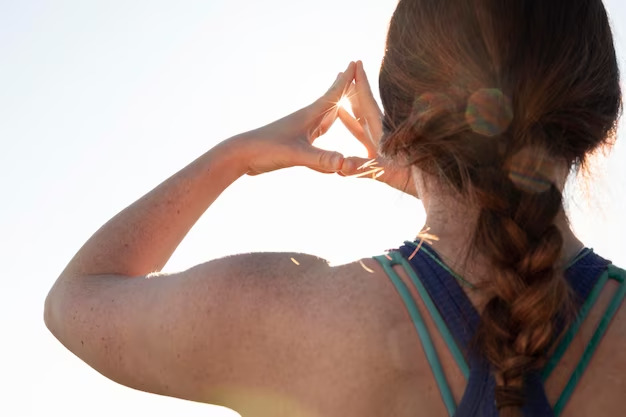
Feeling sick after sun exposure? Learn the symptoms of sun poisoning vs. sunburns, what sun poisoning feels like, and when to see a doctor.
Sun Poisoning vs. Sunburn: How to Know the Difference
The summer months bring warm weather and lots of outdoor time spent in the sun. And while we treasure our days hiking, biking, swimming, barbequing, boating, and picnicking, we can often end up feeling sick after sun exposure. Even on a cloudy, overcast day, we are exposed to harmful UVA and UVB rays from the sun. We can become sunburned in as little as 15 minutes, often without knowing it since redness can take several hours to develop.
Sunburns can be uncomfortable and lead to long-term sun damage, raising the risk of developing skin cancer, sun spots, and wrinkles. Can sunburns make you sick? Yes. More severe sunburns can result in sun sickness, otherwise known as sun poisoning.
What is sun poisoning? Sun poisoning isn’t actual “poisoning.” Rather, it is a severe case of sunburn caused by the sun’s damaging UV rays, with some distinctive causes and symptoms.
Causes and Symptoms of Sun Poisoning: What to Know
Sun poisoning is a severe sunburn with similarities to an allergic reaction. The causes of such severe burns vary. Exposure to the sun without the protection of sunscreen or protective clothing or cover can lead to sunburn or, more seriously, sun poisoning.
Anyone, regardless of skin type, can develop a serious sun sickness, but certain variables can put you at greater risk. Certain antibiotics, antidepressants, and diabetes medications can increase the incidence of sun poisoning. Oral contraceptives and a family history of skin cancer can exacerbate the effects of sun exposure. So can medical conditions like lupus, psoriasis, and rheumatoid arthritis. Being at a high altitude or near the equator where the sun’s rays are more powerful are risk factors. And while those with fair skin and light-colored eyes are most obviously at risk of severe burns, people of color must also exercise caution while in the sun. Any skin can burn and suffer damage.
What does sun poisoning feel like? Here are several symptoms of sun poisoning to look out for:
- Can feel like the flu or an allergic reaction
- Headache, fever, chills
- Blistering or peeling skin, severe red rash
- Shortness of breath
- Nausea or vomiting
- Fainting, dizziness
- Confusion, lightheadedness
- Dehydration
- Skin sensitivity, skin swelling
- Pain
What to Do for Sun Poisoning
Even a short time spent in the sun, especially without any protective clothing or sunscreen, can lead to a serious reaction developing within a few hours. If you’ve been sunburned and begin to experience chills, nausea, lightheadedness, or confusion, or if a blistering rash or skin peeling occurs, you may have sun poisoning. Even a mild sunburn can take a few days to a week to heal; more severe cases of sun sickness can take weeks to overcome.
Sun poisoning is totally avoidable. The best way to evade sunburn making you sick is to prevent getting burned in the first place. Here are a few suggestions for keeping your skin safe:
- The sun’s damaging rays are at their most powerful between 10 a.m. and 2 p.m., so it’s best to plan your outdoor activities for early morning, late afternoon, or early evening.
- Wear clothing that protects your skin from sun exposure. Wear wide-brimmed hats that shade not only your face but your neck and chest. Shield the sensitive skin around your eyes with sunglasses. Wear long-sleeved shirts and long pants.
- Never use a tanning bed. There is no such thing as a safe tan.
- Apply broad-spectrum, waterproof sunscreen to all exposed skin 30 minutes before going into the sun and re-apply every two hours or according to the product instructions. Using sunscreen daily of at least SPF 30 is a healthy habit for anyone with skin.
- Be aware that exposure to damaging rays from the sun occurs not only on sunny days but on overcast, cloudy days, and the sun’s rays are reflected from the surface of sand, water, or snow. Anytime you plan to spend outside, take preventative measures to protect your skin from sun damage.
Sunburns can be uncomfortable but can also be treated at home by drinking water, taking a cold bath or shower, applying cool cloths to the affected skin, taking ibuprofen or acetaminophen to reduce swelling, keeping skin moisturized and out of the sun, and allowing any blistering to heal on its own. A common sunburn will feel better within a week or so.
But if you think you’re experiencing sun poisoning with blistering, nausea, or headache, you must seek medical attention. Sun poisoning treatment is available. Some common remedies include:
- Antibiotics to prevent infection or other medications to ease pain and swelling
- IV fluids can be used if you’ve become dehydrated
- Steroid creams for burns that blister
- Avoid alcohol, which is dehydrating
- Wear cool, loose clothing
- Do not pop any blisters that have formed, as this can lead to infection
It’s wise to know when to see a doctor for sun poisoning. Seek medical attention if your symptoms are flu-like, or you’re severely dehydrated so a medical professional can take your vital signs and assess the severity of your sunburn.
American Family Care: Providing Sun Exposure Solutions
At American Family Care, we offer the right care, right now, for you and your family. You’ll welcome the warm and convenient care offered by our neighborhood urgent care clinics, with extended evening and weekend hours. Our services include urgent care, primary care, express lab testing, physical exams, vaccinations, and a walk-in x-ray clinic. No appointment is ever necessary.
For affordable and stress-free medical attention for sun poisoning or other illnesses, American Family Care is there for you. Find a location near you today.
